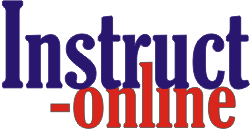
 Phone
(319) 626-2302
Phone
(319) 626-2302
Catalog Number : nad1694
Title : CMS Interpretive Guidelines- ASC Surgical Services & Anesthesia Conditions for Coverage
Speaker : Sue Dill
Webplay Recording Date : 8-17-2010
Webplay Price : $ 160 for two weeks viewing
Webinar Overview:
What do briefings, check lists, team work, fatigue, and distractions have in common? The answer is of course surgical safety. Can chlorhexidine as opposed to the use of povidone-iodine for surgical skin antisepsis really reduce infections? CMS just got a $40 million dollar grant to enforce infection control standards. The CDC says there are 1.7 million healthcare infections and 99,000 deaths every year in America. Should infection control be a focus area for your surgical patients this year? Not doing infection control correctly can end up costing the hospital a lot of money.
A 2010 report on adverse health events in Minnesota reported that a number of pressure ulcers developed while patients were undergoing long surgical procedures. Is that something your hospital should evaluate? This program is geared at helping reduce adverse events in surgery patients and to improve surgical outcomes. This program is a must for anyone who is interested in patient safety and preventing adverse events in patients undergoing surgical procedures. Are you up to speed with the CMS new anesthesia standards for preoperative assessments and post anesthesia evaluations? The anesthesia and postanesthesia standards were changed three times with the latest changes issued May 21, 2010.
Did you know that Joint Commission this month made four changes to the National Patient Safety Goals? This program will cover some of the hot problematic standards with both CMS and the Joint Commission. This program will cover how to meet the CMS and Joint Commission standards on verbal orders and history and physicals.
Target Audience
- OR Manager, OR Nurses, Surgeons, Anesthesia Providers, PACU Nurses, PACU Manager, Nurse Manager Outpatient Surgery, Outpatient Surgery Staff, Risk Manager, Nurse Educators, PI Director, Quality Managers, Joint Commission Coordinator, Compliance Officer, Patient Safety Officer, Freestanding Ambulatory Surgery Managers and Staff, and others involved in promoting Patient Safety and reducing risk in surgical patients.
Webinar Objectives:
- Discuss the 2010 Joint Commission standard that accredited hospitals must have a surgery checklist
- Describe the CMS and Joint Commission requirements such as those for informed consent, history and physicals, and verbal orders
- Recall that a post-anesthesia evaluation must be done on all outpatient surgery patients within 48 hours based on May 21, 2010 changes
- Recall several common legal and risk management issues in surgery such as documentation, policies and procedures, chain of command and unanticipated outcomes and disclosure
Webinar Agenda/Outline:
- Introduction
- Informed consent
- Informed patients and expectations
- Postoperative phone calls Reportable occurrence
- CMS Conditions for Coverage for Freestanding ambulatory surgery centers
- Policies required
- ASA (American Society if Anesthesiologists) resources on ASC
- ASC (American College of Surgeons) closed claims study
- CMS CoP changes on preanesthesia and postanesthesia assessment
- TJC 4 changes to NPSG June 2010
- PIAA general surgery data
- Surgery Patient Institute
- ACS recommendations for safe surgery
- Chain of command
- Surgical checklist
- WHO list and Joint Commission requirement
- 2010 TJC Universal protocol changes
- Team work in the OR
- Tissue tracking
- Unanticipated outcomes and disclosure
- Documentation
- Infection control important in 2010
- Sterilization issues
- Preanesthesia assessment (CMS and TJC)
- Intraoperative assessment
- Post anesthesia assessment and May 21, 2010 CMS requirement
- Labeling of specimens
- Preventing blood transfusion errors
- Vendors in the OR
- RFID use and electromagnetic interference
- Safe injections
- Disruptive behavior
- IHI surgery trigger tool
- CMS H&P (history and physical)
- Verbal orders
- Security of medication and CMS guidelines
- ASA standards and guidelines
- Policies required by CMS
- Surgery equipment required by CM
- TJC and CMS OR register
- Communication issues
- Malignant hyperthermia
- 2010 Update on National Quality Forum 34 Safe Practices
- Anesthesia awareness and more
Contact Hours:
This course has been approved for 1.2 Iowa Nursing Contact Hours. There is usually a reciprocal agreement between state associations to allow these to count for each state. If you have any questions, please ask your state association.
Refund Policy:
Full tuition is refunded immediately on request if the participant has not been sent the program materials and instructions. Once the instructions (including access codes) have been sent, a full refund will be issued only after the program runs and it is verified that the participant did not access the program
.